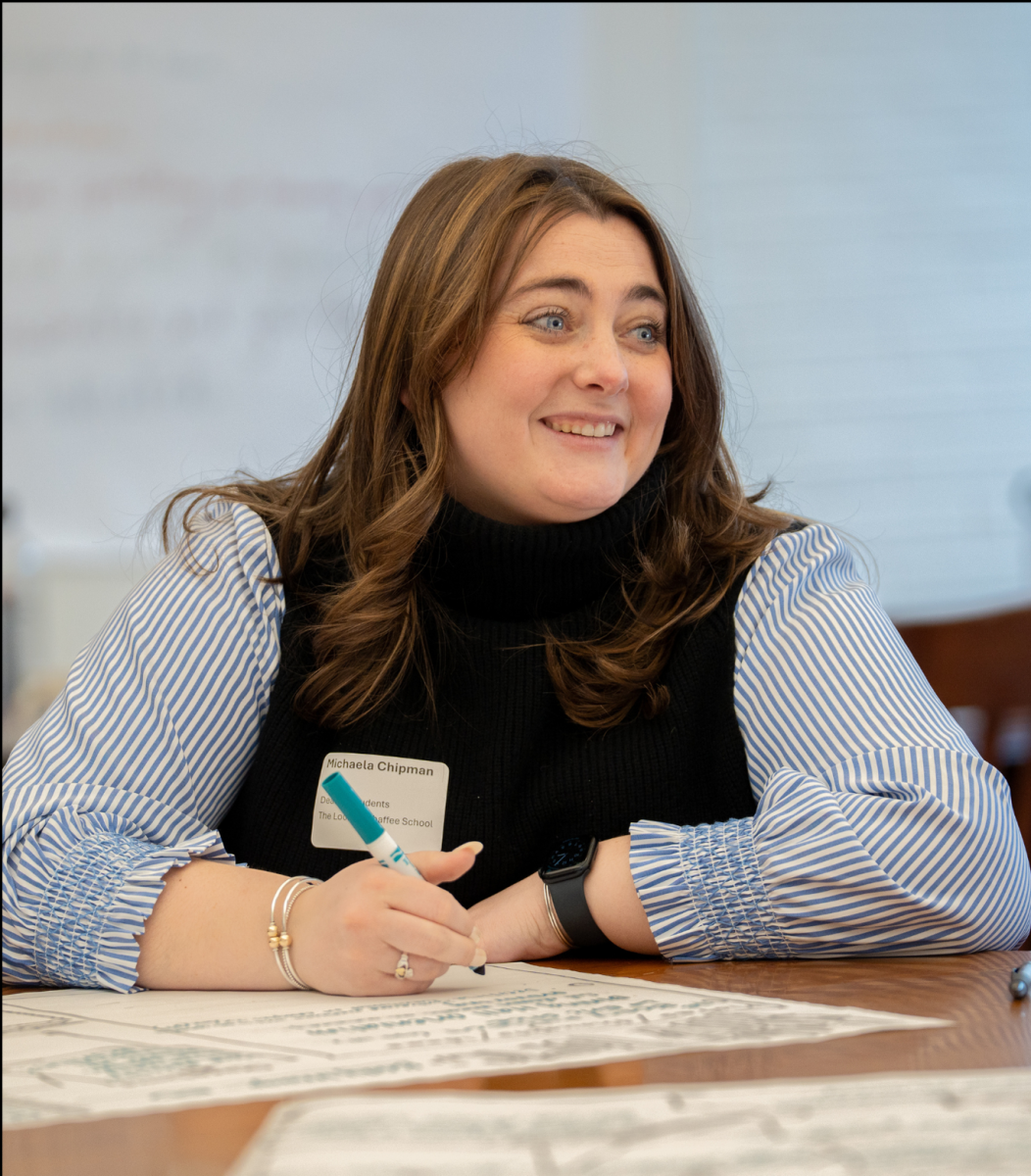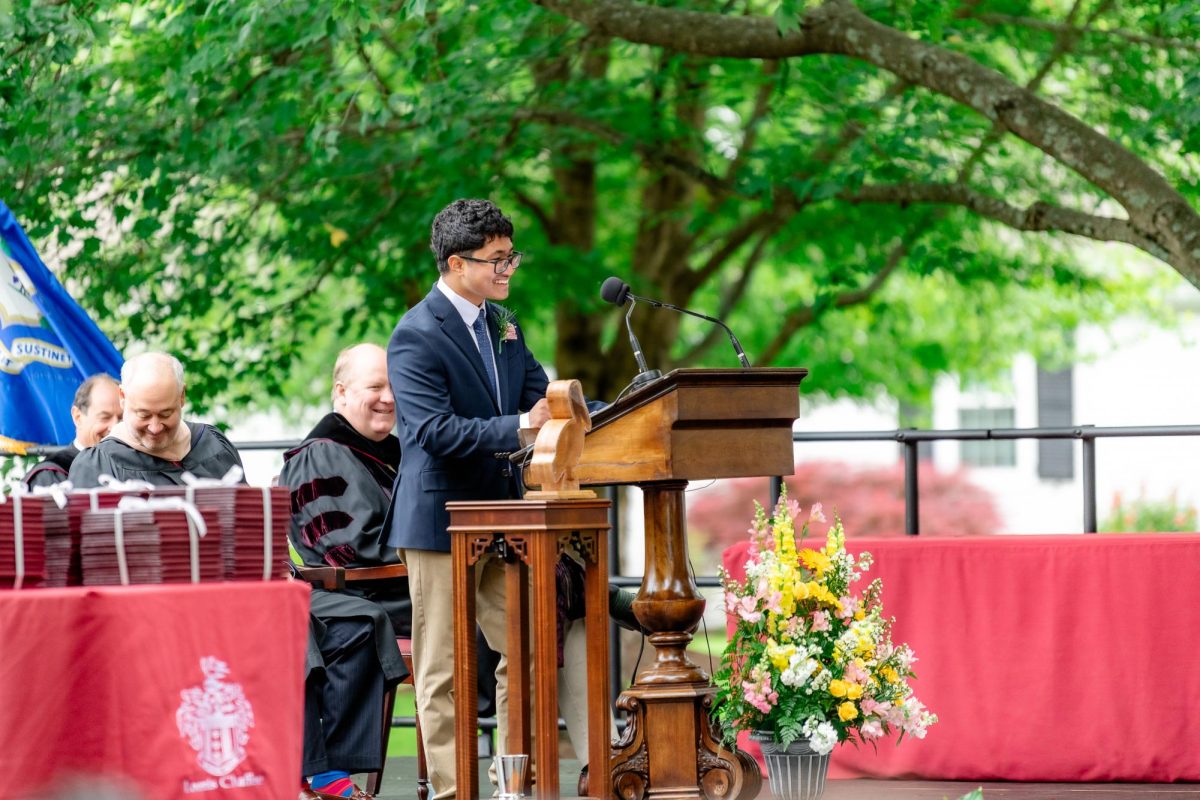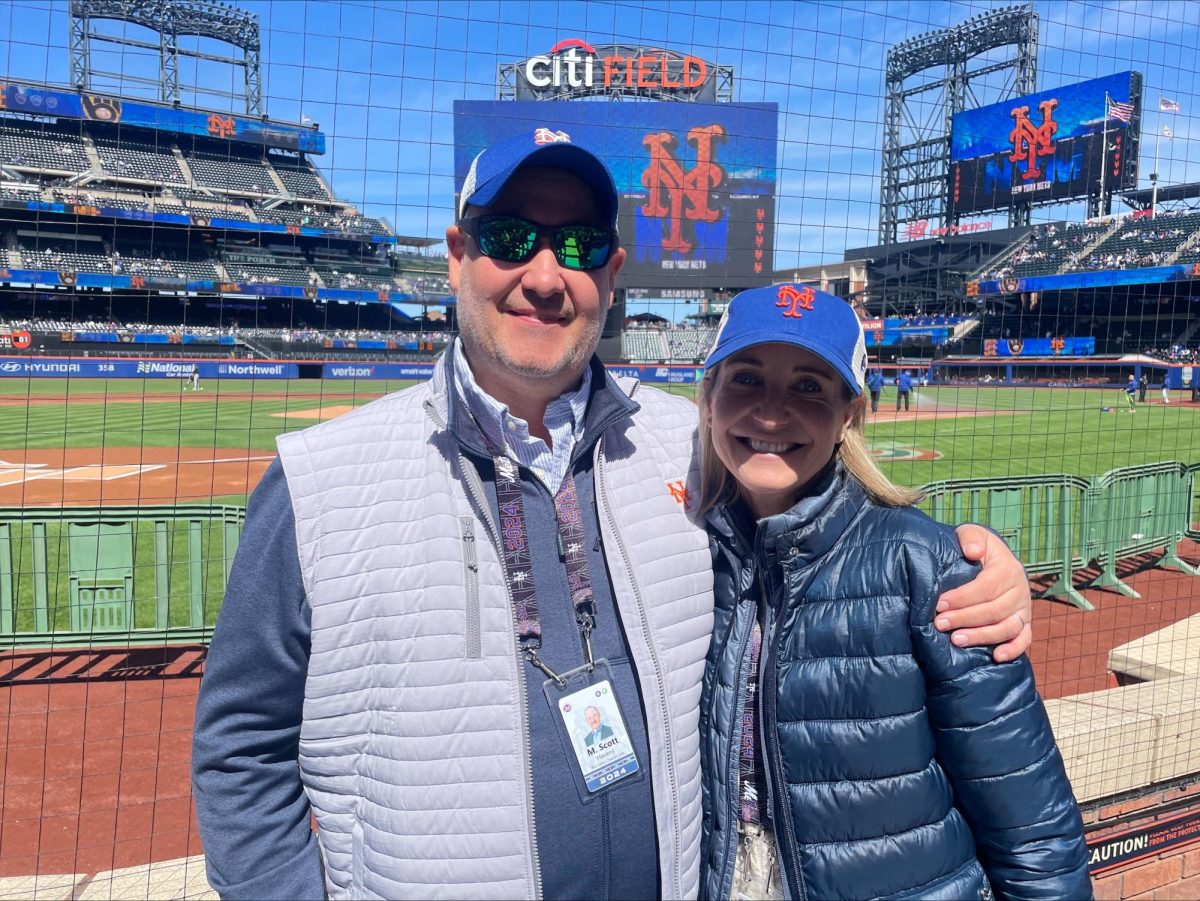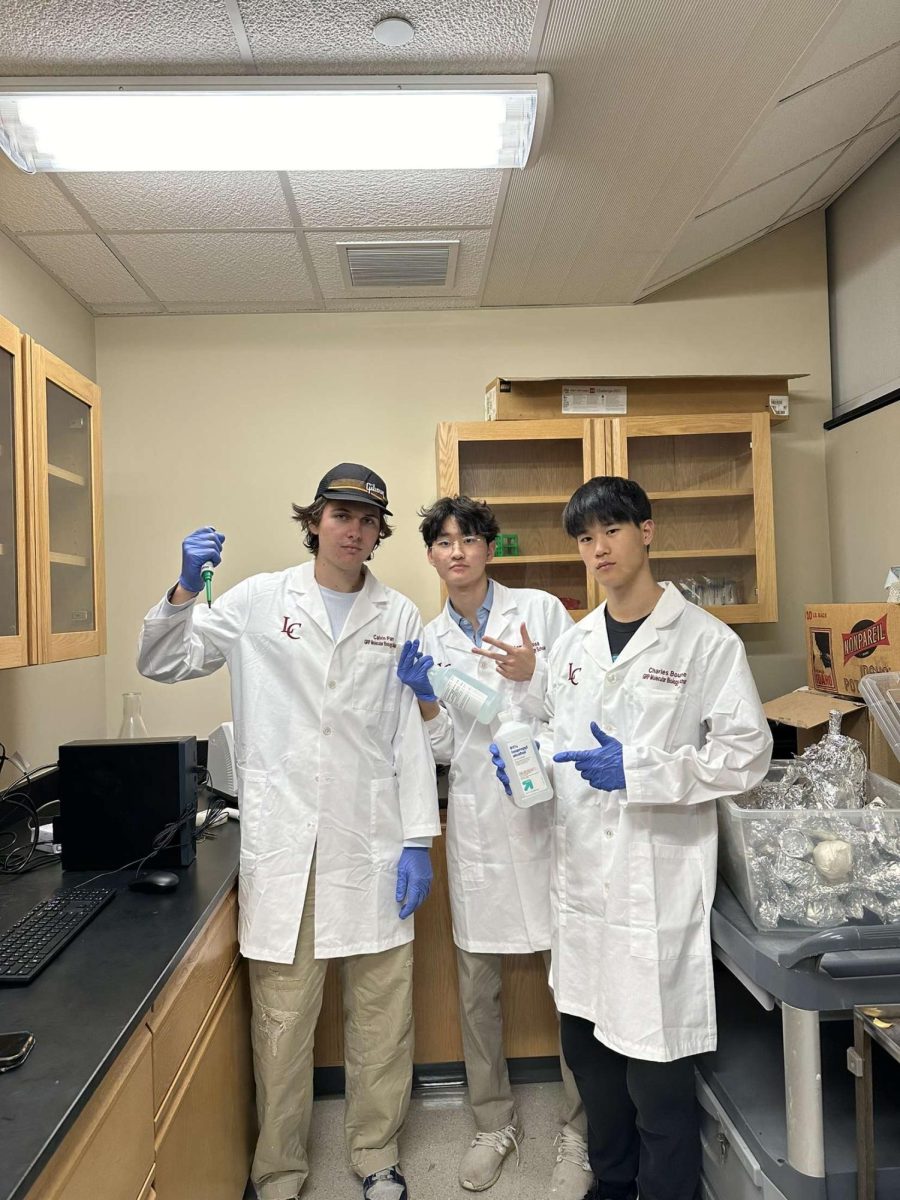Literature is very much alive and relevant.
This is the message that Dr. Zachary Grobe, the assistant English department head, a faculty affiliate with Writing Initiatives, and a faculty resident of Kravis Hall, reflects on and endorses every day.
Dr. Grobe first discovered a profound passion for language and literature when he was an undergraduate student at the University of Massachusetts Amherst. “In my junior year, I took a class called ‘Marxism and the Language of Poetry,’” he said, “we covered a lot of 20th century American poetry, especially by working-class poets— people who were thinking about industrial disasters, structural racism, labor politics, and I just never thought of poetry as so embedded in activist communities before.”
The class transformed Dr. Grobe’s understanding of the power of language as literature becomes a medium of historical testimony that embodies, sustains, and conveys collective memory, especially in its ability to create change within society.
“I think in high school … students often associate poetry with odes to things and sonnets about love. This was the first time when I was like, ‘Oh, this poet had a file at the FBI because they were concerned about her labor activism,’” said Dr. Grobe.
More specifically, Dr. Grobe was intrigued by poetry’s power to articulate trauma suffered by the working class in multiple stages of historical development. He was inspired by Muriel Rukeyser’s documentary poem “The Book of the Dead,” which stemmed from the Hawks Nest Tunnel disaster of 1931. This event occurred in Gauley Bridge, West Virginia, and involved miners without proper protective equipment who suffered from a fatal lung disease, silicosis.
“I was fascinated by the fact that [Rukeyser] was using poetry as a documentary medium and a way of showing that it is really challenging, if not impossible, to find a narrative of some kind of immeasurable loss, especially when there’s no one single experience of it,” said Dr. Grobe, “That poetry really got me interested in thinking about not figuring out the single true narrative, but how we hold many narratives at once.”
Dr. Grobe’s dissertation took a similar approach as he researched contemporary fracking accidents in New York and Pennsylvania, and how poetry conveys the many facets of this collective experience. “Poetry makes more space for ambiguity and doesn’t necessarily pursue an argument or aim to articulate an argument,” said Dr. Grobe, “The poems that I looked at … even thought about the limitations of language to represent and capture moments of trauma.”
After finishing his doctorate at Cornell University and spending some time teaching there, Dr. Grobe joined Loomis Chaffee in 2022, where he brought his multifaceted understanding of English into the classroom. Just as he learned that every piece of history does not have a single, definitive narrative, he encouraged his students to explore their nuanced personal histories through reading and writing.
“ I like to allow student autonomy to the greatest degree possible,” said Dr. Grobe, “I like when people are able to enfold their own interests into their writing and their understanding of texts … [and] when creative work enables them to experiment and to explore something that is important to them.”
More crucially, Dr. Grobe hopes to instill in his students a genuine passion for written work. “I … want people to understand that literature is fun. It’s an important part of our culture, and in order to be a well-rounded person, a responsible citizen, I think you need to be culturally aware and engaged,” he said.
Ultimately, for Dr. Grobe, English has become an act of grounding. It enables him to make sense of his experience and surroundings, forge connections with his peers and students, and retain joy and literary agency. He works alongside Dr. John Morell, and Ms. Karen Parsons to create and foster a strong community among writers, and elicit excitement about the subject.
“Language is the fabric of our culture in so many ways,” he said, “At this moment in time, when so much is going on in the world, telling stories is a way to find little moments of joy, to ground ourselves, and to remind ourselves that culture is vital to how we make the world a better place.”





